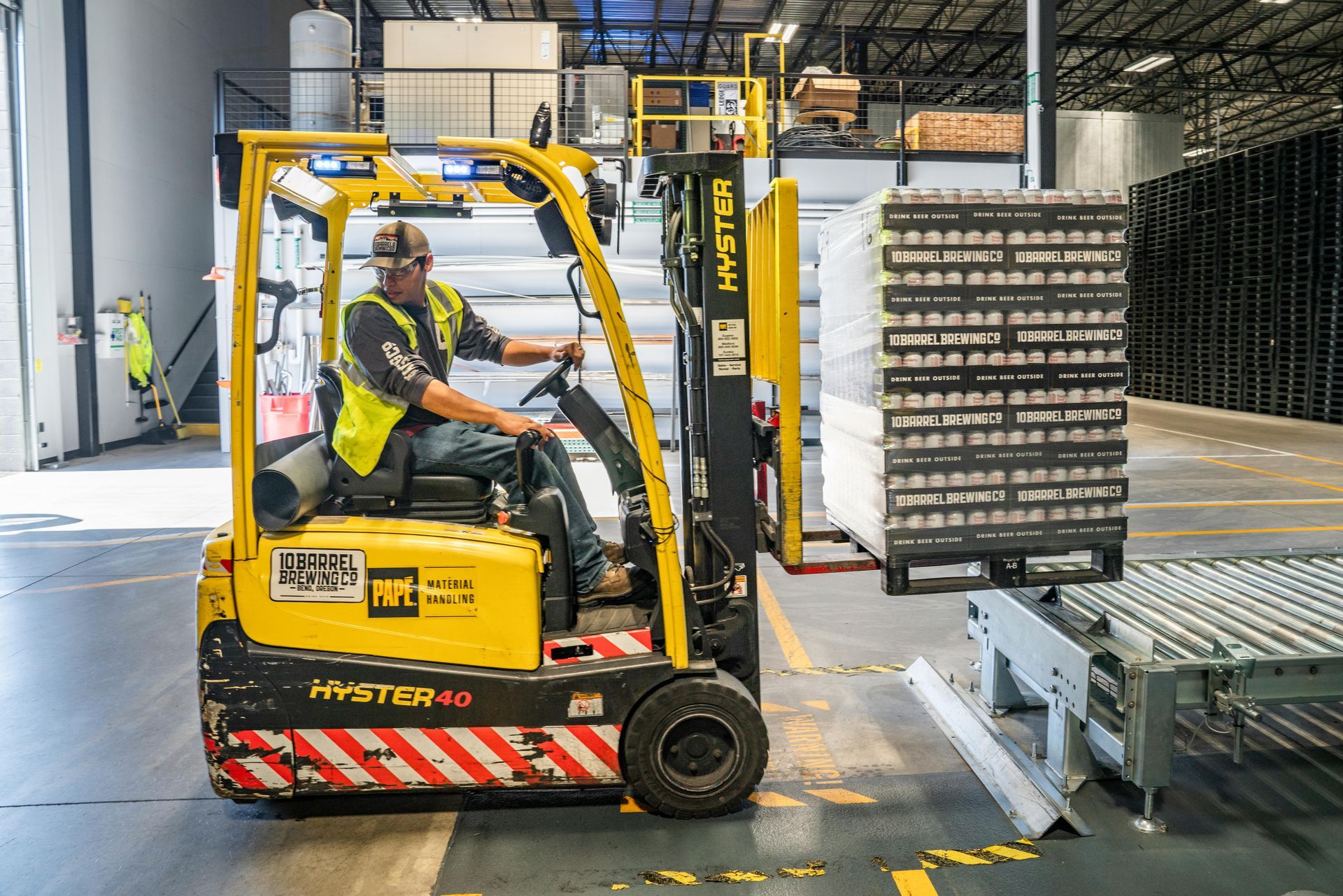Understanding Workers’ Compensation Insurance: A Business Owner’s Guide
Workers’ compensation insurance is a critical component of running a successful business. It provides financial protection for employees who suffer work-related injuries or illnesses while safeguarding employers from potential lawsuits. If you own a business in Tennessee, understanding
workers’ compensation insurance is essential to ensure compliance with state laws and to protect your employees.
At Vicki Moore Agency, we specialize in helping businesses in Athens, TN, find the right coverage for their needs. In this guide, we’ll break down what workers’ compensation insurance is, why it matters, and how to choose the right policy for your business.
What is Workers’ Compensation Insurance?
Workers’ compensation insurance is a policy that covers medical expenses, lost wages, and rehabilitation costs for employees who are injured or become ill due to job-related activities. It also provides financial support to families in case of work-related fatalities. In return, employees typically waive their right to sue their employer for workplace injuries.
In Tennessee, most businesses with five or more employees are legally required to carry workers’ compensation insurance. However, the construction and coal mining industries must have coverage regardless of the number of employees.
Workers’ compensation laws vary by state, but the primary goal remains the same: to provide financial support for employees and protect employers from legal liability. Without this coverage, businesses may find themselves facing costly lawsuits and significant financial losses.
Why is Workers’ Compensation Insurance Important?
1. Protects Employees
Employees are the backbone of any business, and their safety should be a top priority. Workers’ compensation insurance ensures that if an employee gets injured on the job, they receive necessary medical care and compensation for lost wages. This helps employees recover without financial strain and reassures them that their employer values their well-being.
2. Reduces Employer Liability
Without workers’ compensation insurance, businesses may face lawsuits from injured employees, leading to costly legal fees and potential settlements. This insurance provides protection against these financial risks, giving business owners peace of mind and allowing them to focus on growing their company.
3. Legal Compliance
Failing to provide workers’ compensation coverage in Tennessee can lead to severe penalties, including fines and even business closure. Ensuring your business complies with state regulations helps you avoid unnecessary legal troubles. Noncompliance could also impact your ability to secure contracts, as many clients and partners require proof of workers’ compensation coverage.
4. Improves Workplace Morale and Productivity
When employees feel secure knowing they are covered in case of an accident, it fosters a positive work environment. This can lead to increased morale, loyalty, and productivity among your team. Employees who feel valued and protected are more likely to remain committed to their employer.
5. Covers a Wide Range of Injuries and Illnesses
Workers’ compensation insurance covers various workplace injuries and illnesses, from minor sprains and repetitive strain injuries to more severe incidents like fractures, burns, and long-term disabilities. Coverage extends to illnesses caused by exposure to harmful substances, making it an essential safeguard for employees in hazardous industries.
How to Choose the Right Workers’ Compensation Policy
1. Assess Your Business Risks
Start by evaluating your workplace risks. Some industries, such as construction and manufacturing, have a higher likelihood of workplace injuries, requiring more comprehensive coverage. Understanding your industry’s risk level will help you determine the necessary coverage limits and avoid gaps in protection.
2. Compare Insurance Providers
Not all insurance providers offer the same policies or rates. Work with a reputable agency like Vicki Moore Agency to explore different options and find a plan tailored to your business’s needs. Consider insurers with a strong financial reputation and positive customer reviews.
3. Understand Coverage Options
Workers’ compensation policies vary, so it’s important to understand what is covered. A standard policy typically includes:
- Medical expenses for job-related injuries
- Disability benefits for temporary or permanent impairments
- Rehabilitation services for injured employees
- Death benefits for families of deceased workers
Additional coverage options, such as employer liability insurance, may also be available to further protect your business.
4. Consider Policy Costs
Workers’ compensation costs depend on several factors, including the type of business, number of employees, and claims history. Taking steps to improve workplace safety can help reduce premium costs over time. Some insurers offer discounts for businesses with strong safety programs and low claims rates.
5. Work with an Experienced Insurance Agent
Navigating workers’ compensation insurance can be complex, but an experienced agent can simplify the process. At Vicki Moore Agency, we guide business owners in Athens, TN, through every step, ensuring they get the best policy for their budget and needs.
Best Practices for Preventing Workplace Injuries
While workers’ compensation insurance is essential, preventing workplace injuries should always be a priority. Here are some best practices:
1. Implement Safety Training Programs
Regular safety training can educate employees on best practices, helping them avoid accidents. Consider industry-specific training to address unique workplace hazards. Training should be ongoing and updated as new risks emerge.
2. Conduct Routine Safety Inspections
Regularly inspect your workplace for potential hazards and address any safety concerns immediately. Keeping equipment well-maintained and ensuring workspaces are free from hazards can significantly reduce injury risks.
3. Encourage Open Communication
Build a setting in which employees are at ease when reporting potential hazards. Addressing issues early can prevent accidents before they happen. Encouraging employees to participate in safety discussions fosters a proactive safety culture.
4. Provide Proper Protective Equipment
Ensure employees have access to the necessary protective gear, such as helmets, gloves, and safety harnesses. Proper equipment use should be reinforced through regular training sessions.
5. Establish a Return-to-Work Program
A structured return-to-work program helps injured employees transition back to work safely and efficiently, reducing the impact of lost productivity. Light-duty assignments can help employees gradually resume their roles while recovering.
Contact Vicki Moore Agency for Workers’ Compensation Insurance in Athens, TN
Workers’ compensation insurance is not just a legal requirement—it’s a vital part of protecting your employees and your business. At
Vicki Moore Agency, we understand the challenges business owners face and are committed to providing tailored insurance solutions in Athens, TN. We also help with claims for
auto,
home, and
life insurance.
Let us help you find the right workers’ compensation policy to keep your business compliant and your employees safe. Contact us today at
(423) 745-4341 to discuss your coverage options and get a free quote!
FAQs
Who needs workers’ compensation insurance in Tennessee?
Most businesses with five or more employees are required to carry workers’ compensation insurance. However, construction and coal mining businesses must have coverage regardless of employee count.
What does workers’ compensation insurance cover?
It covers medical expenses, lost wages, rehabilitation costs, and death benefits for work-related injuries or illnesses.
How can I lower my workers’ compensation insurance costs?
Implementing workplace safety programs, reducing claims, and working with an experienced insurance agent can help lower your premium costs.
What happens if I don’t have workers’ compensation insurance?
Businesses without the required coverage may face legal penalties, fines, and potential lawsuits from injured employees.Businesses without the required coverage may face legal penalties, fines, and potential lawsuits from injured employees.
How do I file a workers’ compensation claim?
Employees should report their injury to their employer immediately. The employer must then file a claim with their insurance provider, who will assess and process the claim.











